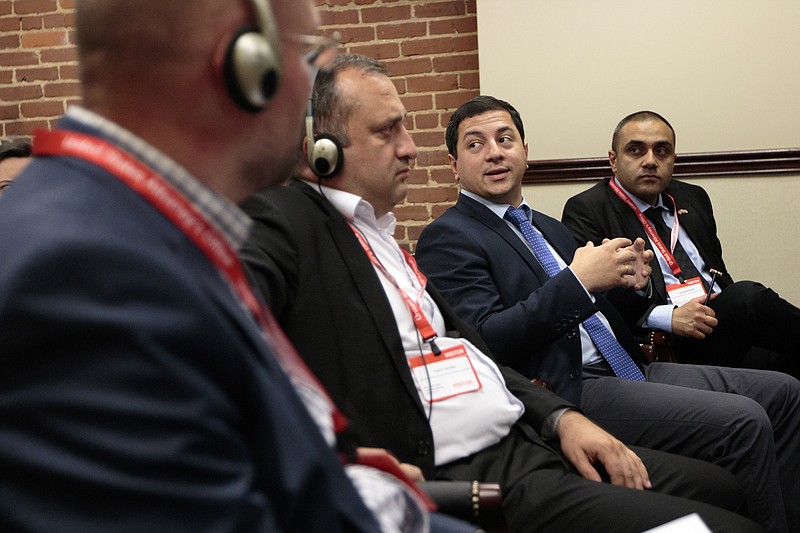The Republic of Georgia has seen just 10 jury trials - ever.
So when a group of about a dozen Georgian government officials, attorneys and judges visited federal courts in Tennessee's Eastern District this week, they came full of questions.
How do judges remain impartial? How do pretrial services work? How do Americans finish jury selection, which in Georgia could take five months, in just a few hours?
The Georgian delegation spent the week in Chattanooga on a trip officials hope will help modernize Georgia's criminal justice sector. Assistant U.S. Attorney Steve Neff, who spent several years on a diplomatic detail in Georgia and worked with the State Department to encourage the development of the Georgian system, helped bring the group here.
It's not as unlikely as it might seem, Neff said: From topography to size, the Eastern District of Tennessee could look very much like the Eastern European region where Georgia sits.
"I always felt like Tennessee would be a good laboratory for them to come see how we do it and how it looks within the confines of a more limited area," Neff said. "Rather than thinking about it as America, think about it as the Eastern District of Tennessee."
In the former Soviet state, bordered by Russia to the north and Turkey and Azerbaijan to the south, the adversarial justice system familiar to Americans is completely new. Before 2010, Georgian citizens instead dealt with a system largely decided by judges.
"It's more like the French inquisitorial system," said Bill Killian, U.S. attorney for the Eastern District of Tennessee.
Years of criminal justice based on judges' rather than jurors' rulings have affected Georgian perception, the visitors said.
"Our society looks with a certain suspicion toward a jury system," said Archil Talakvadze, deputy minister of Internal Affairs.
Neff noted that in America's courts, a controversial verdict or a hung jury can produce public backlash. He also pointed out that while Georgians are learning from the U.S. model, they're also required to meet European standards to be admitted to the European Union, and the differences between systems can create tension.
Neff said huge gaps in Georgian laws can make cases difficult to prosecute. In the U.S., a prosecutor must prove particular elements of a crime to win a case. In Georgia, many laws don't even contain those elements. Neff said he wouldn't know where to begin.
Despite differences, most of the visitors seemed impressed by a Thursday afternoon detention hearing presided over by U.S. Magistrate Judge Susan K. Lee.
She denied pretrial release to a man charged with assaulting a postal worker delivering mail to his home. They listened intently, many through headset translators, as she walked through the hearing with attorneys and made her ruling.
Tatiana Pataraia, an attorney who works with the U.S. Embassy in Georgia, said she was blown away by Lee's "powerful" and "graceful" demeanor, as well as the fact that she remained respectful to both sides.
"This is how it should be," Pataraia said.
Contact staff writer Claire Wiseman at cwiseman@timesfree press.com. Follow her on Twitter at @clairelwiseman.

